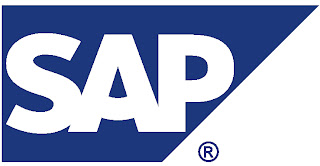SEOUL/LONDON (Reuters) - Samsung Electronics launched its top-of-the-range Galaxy S3 smartphone in Europe on Tuesday, aiming to outsell the previous model that helped the South Korean company topple Apple as the world's largest smartphone maker.
The Galaxy S3, which tracks the user's eye movements to keep the screen from dimming or turning off while in use, hits stores in 28 European and Middle East countries, including Germany and Britain, as Samsung aims to widen the gap with Apple months ahead of its rival's new iPhone, expected in the third quarter.
In the kind of anticipation that has become the norm for Apple gadget releases, about 50 customers queued outside the BASE mobile phone shop in Berlin on Monday night eager to be the first to lay their hands on the S3.
The smartphone, running on Google's Android operating system, boasts a 4.8-inch screen, one of the largest on smartphones ever, and much bigger than the 3.5-inch display on the iPhone 4S.
Top global carriers - from Britain's Vodafone to Singapore's SingTel - have started to aggressively promote the S3, fuelling speculation the smartphone could top its predecessor, the Galaxy S2's 20 million sales worldwide.
"In the two years that we've been offering pre-orders, it's the most pre-ordered Android device we've had in our line-up," said a spokesman for Vodafone UK, declining to disclose exact numbers. "It's on track to meet, if not exceed, the level of pre-orders we expected by the time it actually launches."
Samsung itself has said it expects the new flagship model to outsell its predecessor.
Samsung introduced its first Galaxy in 2010, three years after the iPhone's debut, to counter Apple's roaring success in smartphones at a time when the demise of bigger rivals Nokia and BlackBerry maker Research In Motion had started.
Samsung sold 44.5 million smartphones in January-March - equal to nearly 21,000 every hour - giving it 30.6 percent market share. Apple sold 35.1 million iPhones, taking 24.1 percent market share.
"The Galaxy S3 is a real challenger to the upcoming iPhone," said Francisco Jeronimo, an IDC analyst based in London. "This is likely be one of the most sold smartphones this year, though the real test will come when the next iPhone is launched."
The race for global smartphone supremacy comes as Apple has accused Samsung of copying some of its products. The South Korean company counter-claims that Apple has infringed its patents. Both have denied the allegations, and a long-running court saga continues.
Apple plans to use a larger screen on the next iPhone, according to people familiar with the situation. The current iPhone 4S model was introduced last October.
Samsung launched its own music service on the Galaxy S3, putting itself head-to-head with Apple. It has previously rebranded existing music and video services.
"Samsung is not known for our content services; we make good hardware products but we haven't done much in the content space but that's changing," T.J. Kang, senior vice president of Samsung Electronics' Media Solution Center, said.
"We are doing it to create a better experience for our users. There are things we could do better if we have complete control over all of the service."
MORE ROUNDED
In a departure from its predecessor, whose look and feel became the main subject of the legal dispute with Apple, the latest Galaxy has a more rounded outline. It also has voice recognition, dubbed S Voice, which will inevitably be compared with Apple's Siri, and image recognition software that can tag and share photographs.
Prices vary depending on the contract. A model with 16 gigabytes of memory costs up to 189 pounds ($300) under a 12-month contract with Vodafone. A similar package for the iPhone 4s costs 159 pounds, but comes with a more expensive monthly data plan.
Samsung said it will release the S3 via 296 carriers in 145 countries by July.
Profit from Samsung's mobile division nearly tripled in January-March to $3.6 billion, accounting for 73 percent of operating profit.
Samsung - whose shares have gained 82 percent since late-August, beating Apple's 58 percent rise - is now banking on an aggressive marketing campaign ahead of the summer London Olympics to further drive sales. It has said its mobile market share in China doubled after the 2008 Beijing Olympics.
"The S3 is supported by an unprecedented promotional campaign," said Geoff Blaber, an analyst at CCS Insight in London. "Samsung's timing with the Galaxy S3 is perfect." Read More




















